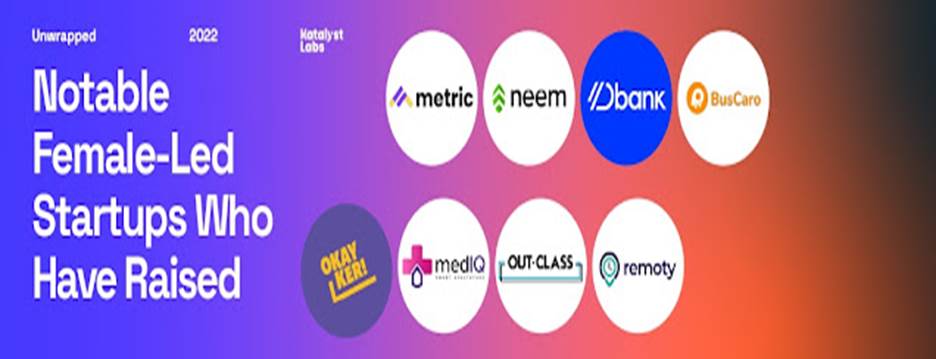
|
Clockwise from top left: Nargis Mavalvala, Maria Abrar, Maheen Adamson, Asifa Akhtar, Sundas Khalid, and Tasneem Zahra Husain |
International Women's Day: Growing Presence of Pakistani Women in Science and Technology
By Riaz Haq
CA

Nearly half a million Pakistani women are currently enrolled in science, technology, engineering and mathematics courses at universities, accounting for nearly 46% of all STEM students in higher education institutions in the country. Several Pakistani women are leading the country's tech Startup ecosystem. Others occupy significant positions at world's top research labs, tech firms, universities and other science institutions. They are great role models who are inspiring young Pakistani women to pursue careers in science and technology.
Pakistani Women in Science
Growing number of Pakistani working women are making a contribution to science and technology. Some of the highest profile names include Dr Nargis Mavalvala and Dr Asifa Akhtar.
Mavalvala is the dean of Harvard University's School of Science and Akhtar is a vice president of the prestigious Max Planck Society in Germany.
Dr Maheen Adamson is a senior research scientist at Stanford School of Medicine. Tasneem Zahra Husain is a theoretical physicist at Cambridge Massachusetts and is known for her work on string theory. Hibah Rahmani is a rocket engineer at NASA (US National Aeronautics and Space Administration). Dr Syra Madad is an epidemiologist currently serving as the Senior Director of the System-wide Special Pathogens Program in New York City.

|
Selected Women-Led Startups in Pakistan in 2022 - Source Katalyst Lab |
Pakistani Women in Technology
Maria Abrar is a data scientist at Reality Labs of Meta (Facebook), a research lab in Toronto, Canada. She has been ranked among Canada's top 25 women in artificial intelligence by ReWork , an Artificial Intelligence (Al) and deep learning content producer based out of London, United Kingdom.
Sundas Khalid is a data scientist at Alphabet (Google) in the United States. Forbes magazine has named her a "trailblazer" in its trailblazer series.
Kalsoom Lakhani, a co-founder and general partner of i2i Ventures, is helping build Pakistani tech startups ecosystem. She and co-founder Misbah Naqvi are passionate advocates for women-led tech startups in the country. So, too, is Jahan Ara, the head of Katalyst Lab accelerator.
Several women-led startups have raised venture funds in Pakistan in 2022. These startups offer solutions in Fintech, Edtech, Healthtech, and Logistics, among others! These are led by Tania Aidrus of DBank, Maha Shahzad of Bus Caro, Vladimira Briestenska of Neem, Meenah Tariq of Metric, Saira Siddiqui of MedIQ, Aiman Bashir of Outclass, Anusha Shahid of OkayKer, and Fatimah Zafar of Remoty.

|
Male-Female ratio of university sudents in Pakistan - Source HEC |
Male-Female Ratio of University Students in Pakistan
Nearly 46% of over 3 million students enrolled in Pakistani universities are female. The proportion of female enrollment has been rising over the last 5 years. The ratio of female enrollees in STEM education is also about 46% of the student body.
Over a million students, about a third of total 3 million students (1.4 million women, 1.6 million men) enrolled in Pakistani universities and degree colleges, are currently studying science, technology, engineering and mathematics (STEM Education), according to data released by the country's Higher Education Commission ( HEC ). Of these students, 415,008 are studying natural sciences and mathematics, 276,659 are in information and communication technologies (ICT), 178,260 are in health sciences and 166,457 are in engineering. Pakistan produced 157,102 STEM graduates last year, putting it among the world's top dozen or so countries. About 43,000 of these graduates are in information technology (IT).

|
Student enrollment by field of study at Pakistani higher education institutions - Source HEC |
Acceptance Rates in University Admissions
Acceptance rate in Pakistani universities and degree colleges was just 13.5% last year. Only 471,306 students were accepted from 4,085,185 students who applied. The country produced 471,306 university graduates in 2020-21. Of these, 157,102 were in STEM fields , including 43,000 graduates in information technology (IT).

|
Pakistan higher education admission and graduation statistics - Source HEC |
In absolute terms, Pakistan probably ranks among the top dozen or so nations producing university graduates in STEM and IT fields. However, the country lags significantly behind its lower middle-income peers in terms of percentage of students enrolled in universities. Only 12% of young people in the 18-25 age group are currently enrolled in higher education institutions. This is about half of the 25% average for South Asia. The data from the Word Bank shows that the higher education enrollment rate was extremely low in Pakistan until 2000 when late President Musharraf decided to significantly boost investment in building universities and hire faculty to rapidly increase access to higher education in the country.
Summary
As Pakistan struggles with multiple serious crises, there is a growing presence of women in science and technology. These young women and men now studying in the nation's universities and colleges offer hope for the country’s bright future. In fact, the vast majority of Pakistanis, particularly women, feel that they lead better lives than their parents did, and they think their children will have even better lives than theirs, according to a Gallup International Poll of 64 countries conducted from August to October last year. The poll asked two questions: 1) Do you feel your life is better, worse or roughly similar to that of your parents? and 2) Do you think your children will have a better, worse or roughly the same life as you? The answers to these questions reveal that Pakistanis are among the top five most positive nations among 64 countries polled by Gallup International.
Anecdotal evidence in terms of packed shopping malls and restaurants in Pakistan's major cities confirms this trend. Such positivity augurs well for Pakistan's prospects of successfully dealing with the current crises. It will drive the nation's recovery.
(Riaz Haq is a Silicon Valley-based Pakistani-American analyst and writer. He blogs at www.riazhaq.com )

